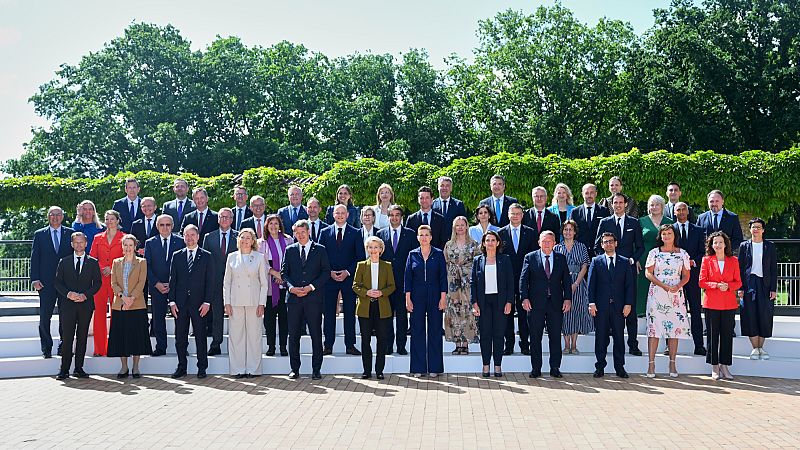Denmark’s Focus on Security and Defence as EU Presidency Begins
As Denmark assumed the six-month presidency of the European Union, security and defence took center stage. On Thursday, the 27 members of the College of Commissioners traveled to Aarhus to officially mark the beginning of this new tenure. The Danish leadership has made clear its intention to prioritize defence and rearmament efforts, aiming to strengthen Europe’s military capabilities.
Danish Prime Minister Mette Frederiksen emphasized the importance of preparing for potential threats. “If we are not prepared to defend our continent, who are we as Europeans?” she asked during a press conference. She called for a comprehensive roadmap to rearm Europe by 2030 at the latest, highlighting the need for common capabilities, a stronger defence industry, joint procurement strategies, and the removal of existing barriers.
Frederiksen also stressed that Ukraine plays a crucial role in the EU’s security. “Right now, it is the army in Ukraine that is protecting Europe,” she stated, adding that Kyiv should be seen as part of the European family. She urged member states to shift their perspective on military aid, suggesting that delivering arms to Ukraine should be viewed as part of Europe’s own rearmament rather than a simple donation.
Linking Migration and Security
In addition to defence, Denmark has linked migration policy with broader security concerns. The Prime Minister argued that the current European system is failing and called for the restoration of border controls. She proposed concrete measures, including the establishment of return centers and asylum procedures outside the EU. These ideas aim to address the growing challenges related to migration and ensure more effective management of the EU’s external borders.
Ursula von der Leyen, President of the European Commission, highlighted areas where Denmark needs to make progress under its presidency. She pointed to the Pact on Migration and Asylum, emphasizing the need for advancements in return policies, the concept of safe third countries, and safe countries of origin. Von der Leyen said these discussions could lead to more efficient and coordinated approaches to managing migration across the EU.
Addressing Trade and Economic Challenges
Trade and economic competitiveness were also key topics during the discussions. The Danish Presidency and the European Commission agreed that enhancing competitiveness should be a top priority. Von der Leyen outlined several initiatives, including the development of the European Savings and Investment Union, which she described as a major joint priority. This initiative aims to boost investment and financial stability within the EU.
Energy costs remain a significant challenge for the EU, especially when compared to international competitors. Von der Leyen announced plans to improve the European energy grid, increase storage capacity, and enhance interconnections between member states. These steps are intended to ensure energy security and reduce dependence on external sources.
Maintaining Unity and Global Competitiveness
Beyond the immediate priorities, Denmark faces the long-term challenge of maintaining unity among the 27 EU member states. The country must ensure that the EU speaks with one voice when addressing geopolitical, trade, and climate-related issues. This will require careful diplomacy and collaboration to align national interests with the broader goals of the union.
As the Danish Presidency begins, the focus remains on strengthening Europe’s defences, managing migration effectively, boosting economic competitiveness, and ensuring a unified approach to global challenges. With these priorities in place, Denmark aims to lead the EU through a period of critical transformation and growth.







